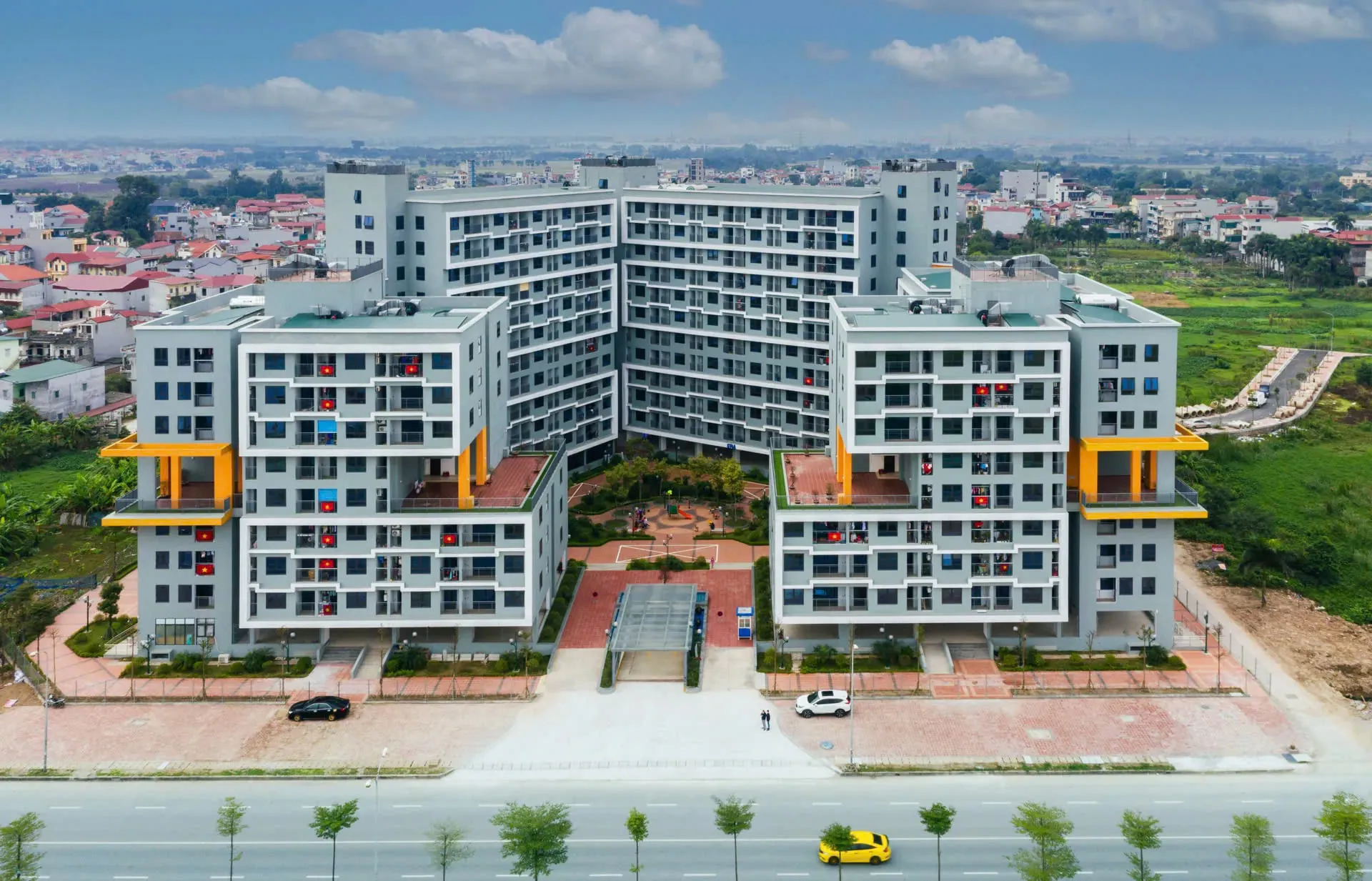Social housing policy to be discussed in May
Financing issues are the main obstacles to the development of social housing.
THE HANOI TIMES — A draft resolution on social housing development will be discussed at the ninth session of the National Assembly next month.

A social housing complex in Dong Anh District, Hanoi. Photo: Kinh te & Do thi Newspaper
On April 25, the NA Standing Committee stated that the draft qualified for submission and could be discussed on an expedited basis so that it could be adopted at the next session.
According to Deputy Minister of Construction Nguyen Van Sinh, the government's draft resolution includes a provision for the establishment of a National Social Housing Development Fund. This fund would receive allocations from the state budget and other legitimate sources to support enterprises and organizations investing in social housing projects.
It also provides for the full or partial reimbursement of investors' compensation, assistance, and resettlement costs for developers of social housing projects who have land use rights or legally acquire such rights through fiscal policy.
Reimbursable or deductible costs would include land use fees, compensation and resettlement costs, and investments in technical and social infrastructure related to land development for social housing.
In some cases, developers take the initiative to acquire land-use rights from local people and advance funds to pay for compensation, site clearance, and infrastructure development, Sinh said.
These costs are currently neither reimbursed nor factored into the pricing structure of social housing projects, while the regulated profit margin for investors is capped.
Reimbursement or deduction of these costs will make social housing investments more attractive to private investors.
“It’s an important step because social housing serves welfare purposes and often yields low returns,” he added.
Hoang Van Lien, Vice Chairman of the National Assembly's Law and Justice Committee, said many lawmakers disagreed with the idea.
The reimbursement policy is a new idea that is not mentioned in the current Politburo directives on social housing development, he said.
Reimbursing such costs could become a financial burden on both central and local budgets, especially if the number of projects and the amount to be reimbursed are not well controlled, Lien said.
"If not strictly regulated, this policy could lead to inflated compensation claims and manipulated infrastructure investment costs, resulting in losses to government budgets," he noted.
Lien said that the draft resolution lacks clear mechanisms for post-implementation audits, monitoring, and financial impact assessments, including the ability to balance and allocate sufficient funds for the policy.
The draft resolution also does not include an opinion from the Ministry of Finance, which is responsible for managing the national budget, he said.
Lien suggested that the drafters should seek guidance from the Politburo and relevant authorities on the proposal, and clearly define the timing of repayments, possibly after project completion.
"This would help avoid the risk of investors reneging on their commitments, failing to achieve the intended social housing outcomes, and causing a loss of resources," he said.
The review panel also recommended that professionals and specialists should not be listed as beneficiaries of social housing in order to maintain the focus on serving low-income groups.
"These professionals are already receiving various incentives under the new policy to promote science, technology, and innovation," said Lien.
The Committee on Legal and Judicial Affairs also proposed allowing government agencies to lease public housing units to house civil servants, especially in localities undergoing administrative mergers.
The NA Standing Committee emphasized that the drafting bodies must clearly define the spending tasks of the National Social Housing Development Fund to ensure strict and efficient use of resources and to avoid overlapping with other budgetary expenditures.
The Committee endorsed the establishment of the Fund, but recommended that its legal status and organizational model be outlined to allow the government to detail specific regulations.
Nguyen Khac Dinh, Vice Chairman of the National Assembly, asked the relevant agencies to seriously consider the feedback from the Committee, assess the impact of the proposed measures, and finalize the draft resolution for submission to the National Assembly.












